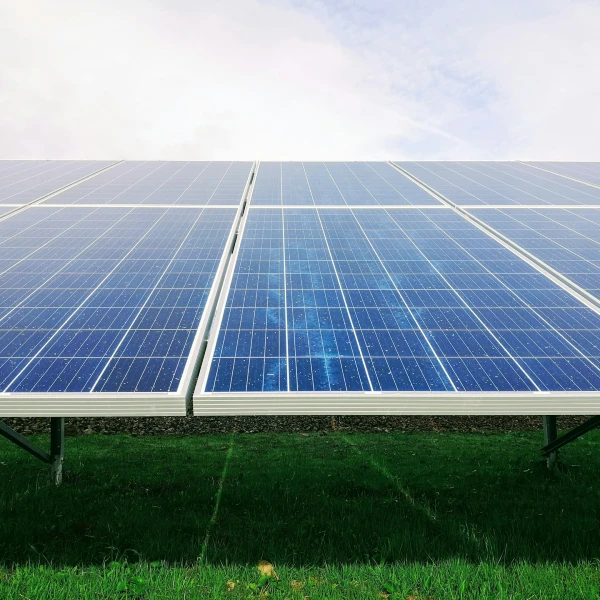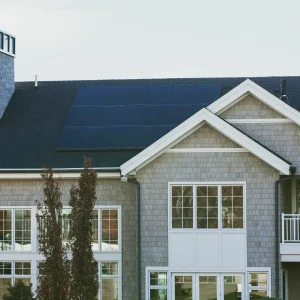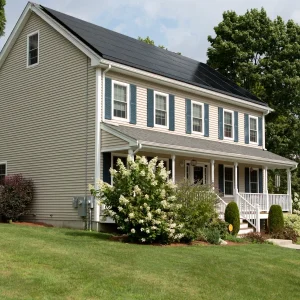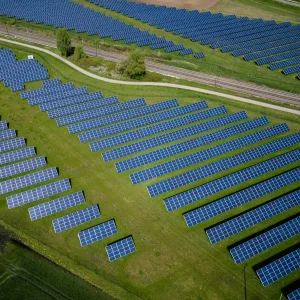In today’s world, where environmental consciousness is on the rise and energy costs continue to fluctuate, more and more homeowners are turning to solar power as a sustainable and cost-effective solution. If you’re new to the idea of solar energy for your home, you’ve come to the right place! In this comprehensive guide, we’ll walk you through everything you need to know about going solar and how to maximize your savings in the process.
Understanding Solar Energy: How Does It Work?
Before diving into the world of solar panels and inverters, it’s essential to understand the basics of how solar energy works. At its core, solar energy is harnessed from the sun’s rays using photovoltaic (PV) panels. These panels contain silicon cells that convert sunlight into electricity through the photovoltaic effect. This electricity is then stored in batteries or fed into the grid for later use.
The Benefits of Solar Energy for Homeowners
Switching to solar power offers a myriad of benefits for homeowners:
- Lower Energy Bills: By generating your electricity, you can significantly reduce or even eliminate your monthly energy bills.
- Environmentally Friendly: Solar energy is a clean, renewable resource that produces no greenhouse gas emissions, helping to reduce your carbon footprint.
- Increased Property Value: Homes equipped with solar panels typically have higher property values and sell faster than those without.
- Energy Independence: With solar power, you’re less reliant on traditional energy sources, providing greater energy security and independence.
Assessing Your Home’s Solar Potential
Not every home is suitable for solar panels, so it’s essential to assess your property’s solar potential before making any decisions. Here are a few factors to consider:
Roof Orientation and Shading
Ideally, your roof should have a south-facing orientation with minimal shading from trees or nearby buildings. The more sunlight your panels receive, the more energy they can generate.
Roof Condition and Size
Your roof should be in good condition and have enough space to accommodate the solar panels. If your roof needs repairs or replacement soon, it’s best to address those issues before installing solar panels.
Local Regulations and Incentives
Check with your local authorities regarding permits and regulations for installing solar panels. Additionally, research available incentives, such as tax credits or rebates, to help offset the cost of installation.
Choosing the Right Solar System
Once you’ve determined that your home is suitable for solar panels, it’s time to choose the right solar system for your needs. There are several options to consider:
Grid-Tied Systems
Grid-tied systems are the most common type of solar installation for homeowners. These systems are connected to the utility grid, allowing you to draw electricity from the grid when needed and sell excess energy back to the grid.
Off-Grid Systems
Off-grid systems are independent of the utility grid and rely on batteries to store excess energy for use during periods of low sunlight. These systems are ideal for remote areas without access to the grid.
Hybrid Systems
Hybrid systems combine the best of both grid-tied and off-grid systems, allowing homeowners to draw electricity from the grid when needed and store excess energy for later use.
Maximizing Your Solar Savings
Once your solar system is installed, there are several ways to maximize your savings and get the most out of your investment:
Energy Efficiency Upgrades
Before going solar, consider making energy efficiency upgrades to your home, such as installing LED lighting, upgrading appliances to energy-efficient models, and improving insulation. These upgrades can reduce your overall energy consumption, allowing you to maximize the benefits of solar energy.
Net Metering
Take advantage of net metering programs offered by many utility companies. Net metering allows you to earn credits for excess energy produced by your solar panels, which can offset the cost of electricity drawn from the grid during periods of low sunlight.
Monitoring and Maintenance
Regularly monitor your solar system’s performance and schedule routine maintenance to ensure optimal efficiency. Cleaning your solar panels periodically and inspecting for any signs of damage can help prolong the life of your system and maximize savings.
Conclusion
Going solar is not only a smart financial decision but also a significant step towards a more sustainable future. By harnessing the power of the sun, homeowners can reduce their energy bills, increase their property value, and contribute to a cleaner environment. With careful planning and the right solar system, you can enjoy the benefits of solar energy for years to come.
FAQs
1. How much does a solar panel system cost for the average homeowner?
The cost of a solar panel system varies depending on factors such as system size, location, and available incentives. On average, homeowners can expect to pay between $15,000 and $25,000 for a typical residential installation.
2. Will I still have electricity during a power outage with a solar panel system?
It depends on the type of solar system you have installed. Grid-tied systems will shut down during a power outage for safety reasons, but hybrid or off-grid systems with battery backup can provide electricity during outages.
3. How long do solar panels last?
Most solar panels come with warranties ranging from 25 to 30 years, but they can last much longer with proper maintenance. Inverter warranties typically range from 10 to 25 years.
4. Can I install solar panels on a flat roof?
Yes, solar panels can be installed on flat roofs using mounting systems designed for flat surfaces. However, flat roofs may require additional tilt frames to optimize sun exposure.
5. Will solar panels increase my property taxes?
In many areas, solar panel installations are exempt from property tax increases. Additionally, solar panels can increase your property value, potentially offsetting any tax implications.




